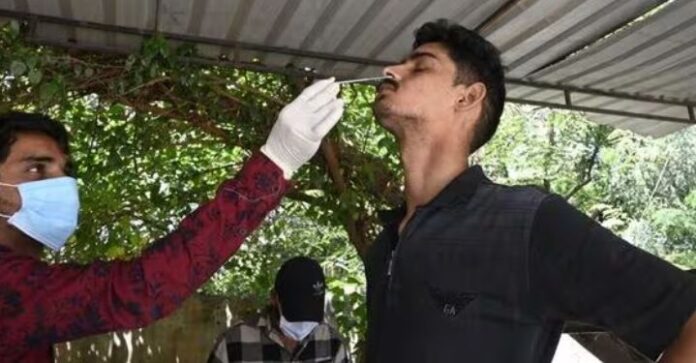New Delhi, May 31, 2025 — As Delhi continues to navigate the ongoing public health challenge posed by COVID-19, the city has recorded a new rise in infections, with active cases now exceeding 290. Health officials confirmed one COVID-19-related death, the first in the latest wave. With the virus evolving and new variants emerging, experts and administrators are closely monitoring the situation, emphasizing the importance of preparedness and public cooperation.
Current COVID-19 Situation in the Capital
Delhi’s COVID-19 dashboard shows a steady increase in active cases over the past two weeks, bringing the total number to 293 as of Friday. While the number remains lower than previous surges experienced in 2020 and 2021, the upward trend has health officials on alert.
Most of the recently detected cases have been categorized as mild, with patients showing symptoms similar to seasonal flu: low-grade fever, sore throat, fatigue, and cough. However, a few hospitalizations have been necessary for individuals with comorbid conditions.
First Death in the New Wave
A 60-year-old woman with pre-existing health issues became the first casualty in this phase of the outbreak. According to hospital authorities, the patient had been admitted for an intestinal obstruction but later tested positive for COVID-19. Her condition deteriorated rapidly, leading to her death.
This incident has renewed concerns about how even mild waves of COVID-19 can pose significant risks to people with compromised immunity or chronic health conditions.
Response from Health Authorities
The Delhi Health Department, along with municipal corporations and central agencies, has intensified surveillance across hospitals and testing centers. Random testing at crowded public spaces such as metro stations, markets, and bus terminals has been reintroduced.
In a recent statement, Delhi’s Health Minister urged residents to adhere to COVID-appropriate behavior. “We are witnessing a mild rise in cases. While the majority are not serious, we must not be complacent. Masks in crowded spaces, proper hygiene, and timely testing can help us prevent another full-blown wave,” he said.
New Variant Observations
While no official confirmation has been made regarding a dominant new strain, medical experts have pointed out that the pattern of symptoms and the speed of transmission could indicate the presence of a sub-variant of Omicron, likely to be Eris (EG.5) or JN.1, both of which have been noted in other parts of India in recent months.
Virologists at the All India Institute of Medical Sciences (AIIMS) are conducting genome sequencing of selected samples to confirm the nature of the circulating strains.
Vaccination and Booster Drive
The city’s vaccination campaign has shifted its focus to booster doses and encouraging uptake among senior citizens and those with comorbidities. According to government data, Delhi has administered over 3 crore doses in total, but the uptake of booster doses remains sluggish.
Pop-up vaccination camps have been reinstated in RWAs (Resident Welfare Associations), schools, and primary health centers to improve accessibility.
Preparedness Reports and Infrastructure Readiness
In response to the evolving scenario, the Union Health Ministry has asked all states and union territories to submit updated COVID-19 preparedness reports by June 2. These reports are expected to detail testing capacity, hospital readiness, oxygen availability, stock of antiviral medicines, and personnel deployment strategies.
Delhi officials have reassured the public that hospitals are equipped to handle moderate surges. Dedicated COVID-19 wards are on standby at several government and private facilities.
Public Sentiment and Safety Measures
The public reaction remains mixed. While some Delhiites have resumed mask-wearing voluntarily, many continue with business as usual, a sign of pandemic fatigue. However, schools and colleges have circulated advisories to parents, encouraging sick students to stay home.
Markets and public transport hubs are seeing increased monitoring by enforcement teams. The Delhi Metro Rail Corporation (DMRC) has resumed public announcements reminding commuters of health protocols.
Expert Opinion: Should Delhi Worry?
Dr. N.K. Arora, a leading epidemiologist advising the government, commented, “We are not in the same situation as 2020 or 2021. The population has significant immunity, either from vaccines or past infection. Still, we must be vigilant. The virus is mutating. It may not be lethal for most, but for high-risk individuals, even mild infection could be serious.”
He added that annual COVID-19 boosters may become a norm, especially for the elderly and those with chronic conditions.

